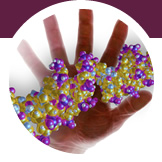Mar 11 2010
WaferGen Biosystems, Inc. (OTC Bulletin Board: WGBS), a leading developer of state-of-the-art genetic analysis systems, today announced eight new early-access customers that include major universities and service providers in the U.S. and Japan.
 The company announced that it has shipped the first SmartChip Real-Time PCR System to an international customer following CE marking certification.
The company announced that it has shipped the first SmartChip Real-Time PCR System to an international customer following CE marking certification.
The company also announced that it has shipped the first SmartChip Real-Time PCR System to an international customer following CE marking certification. WaferGen's commercialization strategy is to generate revenue through the early-access program and the recently launched service prior to broader availability of the SmartChip System planned for later this year.
The new early-access customers include Stanford University, University of California at San Francisco, University of Pittsburgh, University of Southern California (USC), the University of Texas Southwestern, two Japanese organizations, and an undisclosed U.S. biotech company. The first international shipment was made to an organization in Japan. Research underway at these organizations includes applications for lung disease, wound healing, stem cell research and oncology.
"These notable early users of our SmartChip platform are clear indication of its value to vastly improve gene expression analysis and genotyping in order to provide a better understanding of disease at the molecular level and advance the drug development process," said Alnoor Shivji, WaferGen chief executive officer, president, and chairman.
"SmartChip offers researchers the high-throughput capability of interrogating thousands of genes and validating hundreds of samples simultaneously in a single run using Real-Time PCR. This improved molecular analysis could thereby provide the potential for a patient to be diagnosed and even selected for clinical trials according to genetic information. Therapies could be developed to work on specific molecular targets. This could shorten the drug development process, help reduce the costs of drug development, and enable more successful end-products."
"The CE Marking certification of our SmartChip Cycler and SmartChip Nanodispenser will enable us to market and sell the SmartChip system in Europe and Japan where the CE mark is recognized," said Shivji. "This certification along with the TUV safety approval for North America represents significant steps in our process toward commercialization."
The CE Marking is verification that medical devices have met specified health, safety and environmental protection requirements allowing them to gain access to the EU market.
Three of the new customers have signed agreements to use the WaferGen SmartChip Service to receive gene-expression profiling services by WaferGen scientists at the company's new headquarters facility in Fremont, Calif. The WaferGen SmartChip Service is targeted at scientists involved in the discovery and validation of molecular biomarkers, which are gene expression patterns. By comparing biomarkers of normal and diseased patients in the presence or absence of drugs, scientists have better insight into the genes or set of genes that can be used in drug development.
The remaining new customers are part of WaferGen's early access program and have earlier versions of the SmartChip System; shipments have already occurred, including to the Japanese customers. They will be able to use the SmartChip platform as part of their molecular research to enable accurate, highly sensitive, high-throughput gene expression data. "These customers gain early access to the benefits of SmartChip while we receive revenue prior to general availability," said Shivji.
The WaferGen SmartChip System
The SmartChip Cycler and the SmartChip Nanodispenser that received the CE/TUV certification are two of three components of the SmartChip Real-Time PCR System that also includes the SmartChip. The SmartChip contains 5184 nanowells preloaded with primer content optimized for performance with the SmartChip System. The SmartChip Nanodispenser is used to dispense the sample and master mix onto the SmartChip under vacuum in a specially designed fixture and vacuum chamber. The dispensed chip is placed into the specially designed WaferGen SmartChip Cycler and subjected to Real-Time PCR and amplicon melting analyses. Data in the form of Ct (threshold cycles) and Tm (melting temperatures) are downloaded and analyzed. Combined, the SmartChip Real-Time PCR System is expected to provide industry-leading throughput levels, while offering discovery and validation capability in a single platform. The result will be the ability to conduct gene expression research at a fraction of the time and cost currently produced by existing instrument systems.
The WaferGen SmartChip Service
The initial product run on the SmartChip platform as part of the WaferGen SmartChip Service is the SmartChip Human Oncology Gene Panel that provides pathway based gene expression profiling for Oncology. Recently made available as part of the service is the Human microRNA Panel that provides the most comprehensive human microRNA panel of more than 800 microRNAs on a single SmartChip. MicroRNAs are small non-protein-coding single-stranded RNA molecules that function as negative regulators of gene expression by targeting specific messenger RNAs that could benefit diagnosis, prognosis, and treatment of diseases such as cancer.
Source: http://www.wafergen.com